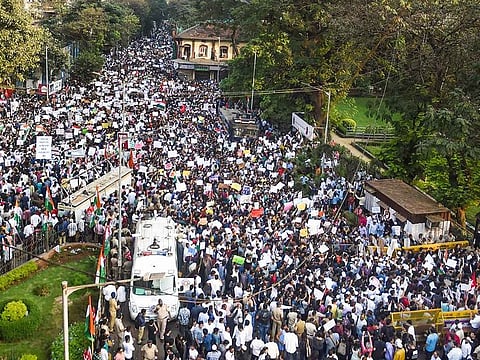Why India should rethink its citizenship laws
A brief history of citizenship will tell us the context of the Citizenship Amendment Act

There are two ways for countries to define citizenship: “Jus soli” and “Jus sanguinis”.
“Jus soli” is citizenship by birth. So if you are born in a country, you have the right to be its citizen, even if your parents are not citizens of that country. For example, you can get American citizenship if you were born in the United States even if your parents were foreign students, visiting international tourists or illegal immigrants.
“Jus sanguinis” is citizenship by blood. Countries that follow this practice give citizenship only to those whose parents are also citizens of the country. For example, if your parents are Indians working in Saudi Arabia and you were born in the country, the fact of birth doesn’t entitle you to Saudi citizenship.
After India became independent in 1947, the Constituent Assembly debated this question. It chose Jus soli — anyone born in India was Indian, said the law.
Statute of Unity
It will surprise many today that a man appropriated as a right-wing icon, Sardar Vallabhai Patel, India’s first home minister, passionately backed Jus soli. He thought India should take a “broad” view of nationality.
He said, “The citizenship clause has been taken from the American model, which is more or less consistent with the English.”
When “Jus soli” was formally enshrined in the Citizenship Act of 1955, Sardar Patel reiterated: “The mere fact of birth in India invests with it the right of citizenship in India.”
Amendment in 1986
Here’s another surprise. This “broad” “cosmopolitan” view of citizenship was first altered by a Congress government. In 1986, under the leadership of then Prime Minister Rajiv Gandhi, the Citizenship Act was changed to say that at least one of your parents had to be Indian.
This meant that if one had to prove Indian citizenship, one needed two birth certificates, one’s own and one of either parent. This change was made under the pressure of Assamese sub-nationalists who had apprehensions about illegal immigration from Bangladesh.
The law was made stricter in 2003 under the leadership of Prime Minister Atal Behari Vajpayee and Deputy Prime Minister LK Advani. If you were born on or after 3 December 2004, you have to prove that one parent was an Indian citizen and the other was not an illegal immigrant. In effect, if you are a 19-year-old in India today, you need three birth certificates or other strong documents to prove your citizenship.
Weeding out non-citizens
You might argue, the government never asks anyone to prove their citizenship, so these changes don’t really matter. Not outside Assam anyway. In that state there are tribunals that declare people stateless because they don’t have such documents.
Except that in 2003, the government also announced a mechanism to test the citizenship of all Indian citizens. This mechanism is called the “National Register of Citizens”. Creating a register of citizens requires weeding out non-citizens. This exercise was carried out in Assam and found at least 1.9 million people who could not prove their parents were born in India.
The provision to carry out this exercise across India exists in law, but hasn’t been done. What if it were carried out?
Millions of Indians won’t be able to produce requisite documents. There may be other ways to prove citizenship but some may fail the tests.
Also Read: Can Rahul Gandhi win India from Cambridge?
Why CAA rules are a relief
Which is where people feared the Citizenship Amendment Act of 2019 could help everyone except Muslims get citizenship from the backdoor. As in Assam, Muslims across India feared they could be made stateless.
Now that the CAA rules have been notified, we can safely say that such misuse of CAA is unlikely. The rules require enough documents that you or your parents once belonged to another country and that you entered India before December 2014.
There’s much that is wrong with CAA, especially making religion as a basis of legal entitlement in a secular country. The Supreme Court is hearing challenges to CAA. We need a comprehensive non-discriminatory refugee law in keeping with global best practices.
Yet, for now, given that CAA rules require enough documents, the fear of its misuse may for now be put to rest. The requirement of documents make it impossible for CAA to be used to give non-Muslim Indians back door citizenship while excluding Muslims.
Yet we must continue the larger debate on the idea of citizenship. People often don’t have documents in a poor country where millions can’t read and write. Returning to Sardar Patel’s enlightened idea of “Jus soli” would be a fitting tribute to him in 2025, his 150th birth anniversary.




